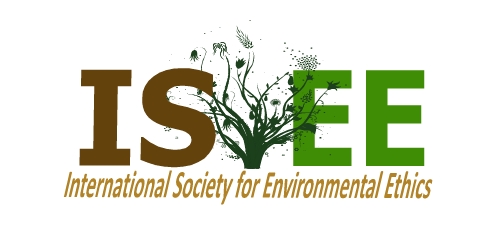1 July - 20 July 2012. Location: ETH Zurich, Switzerland.
Ideas into Action
With the summer school 2012, the ETH Zurich wants to introduce innovative and sustainable approaches to secure our global food supply and find new ways of confronting the mayor challenges associated with food security. For three weeks, the ETH Zurich will create an environment in which interdisciplinary and international teams can work together with industry partners to create solutions for concrete case studies.
Important learning goals are to:
Important learning goals are to:
- understand the global food system, the inter-linkages, complexities, key players and key challenge
- comprehend the social, political and economic aspects of the food system and the major challenges associated
- work out the major environmental drivers behind the global food challenges
- know the social and environmental challenges of food security and potential solutions to ensure it
- to understand the social and environmental impacts of our current global food system
- learn working in interdisciplinary and intercultural teams
- apply creative technologies in solution finding processes
- get hand‘s on experience by applying knowledge in real life case studies
A global Challenge
Food is one of the most basic human needs, but famine is still not a thing of the past. Having said that, we‘re also at a point were more than 1.1 billion people worldwide are overweight. Although quite different in their appearance, they are just the two sides of the same coin, a world food system out of balance. Rising food prices and subsequent riots, environmental pollution and degradation as well as climate change are other consequences. And causes at the same time.
Besides from understanding this complex and intertwined system, the greatest challenges are to make food production sustainable while controlling greenhouse gas emission, conserving dwindling water supplies and decreasing biodiversity. This will require a revolution in the social and natural sciences concerned with food production, as well as a breaking down of barriers between fields. The goal is no longer simply to maximize productivity, but to optimize across a far more complex landscape of production, environmental, and social justice outcomes.
Who Should Apply?
The ETH Sustainability Summer School 2012 will invite 30 Bachelor, Master and PhD students from a wide spread of nationalities and disciplines. The course aims to ensure a well-balanced mixture between science, technology and design. Candidates will be selected from all relevant disciplines (e.g. Agriculture, Food Science, Environmental and Engineering, Architecture, Fine Arts, Management and Social Sciences). Applicants will be evaluated on their academic strength, creativity and technical-related expertise, and their dedication to solving humanity’s grand challenges.
Outline
The participants of the summer school will be composed of 15 students from the ETH Zurich and 15 students from other academic institutions, in addition to faculty members and industry partners coming from various fields of expertise. During the first week, students will receive an introduction to all topics relevant to the world food system and its related fields. This will occur through a series of lectures and workshops conducted by both local and international experts as well as inputs speeches by and discussions with sustainability pioneers. In weeks 2 and 3, students will be split into the three thematic groups to carry out a guided case study from an industry partner, and to gain further input through lectures, workshops and excursions in one of the three topics:
- Urban Farming
- Smallholder Livelihood in Developing Countries
- Food Waste
A Strong Team
Successful projects are the result of dedicated individuals and teams. The ETH Sustainability Summer School Programme will be organised by ETH Sustainability, the central hub for coordinating sustainability activities at ETH Zurich, and the World Food Systems Competence Centre in collaboration with the Department of Environmental Systems Science, the Department Health Sciences and Technology, the Department of Architecture, Eawag, NADEL, the Club of Rome, Exploration Architecture, Federal Office for Agriculture, FiBL, Halba and Helvetas. Input and support for the formulation of individual case studies is provided by selected firms and institutes that occupy a leading role in the field of sustainable development namely the FAO, Syngenta and the Urban Farmers.
Application
The ETH Sustainability Summer School Programme is designed for 30 students from a wide range of backgrounds and fields of study. Applicants must send a one-page CV and one-page letter of motivation stating their interest in one of the aforementioned topics of Urban Farming, Smallholder Livelihood in Developing Countries, or Food Waste (admission will be for one of these three thematic case study tracks and cannot be altered once accepted).
Deadline for application: April 22, 2012
Notification of admission: April 30, 2012
Please send your complete application to mailto:%20catherine.lippuner@sl.ethz.ch
(Please resend your application if you did not receive an acknowledgement of receipt within two days).
Costs
The course fee for the three weeks is CHF500, including accommodation and board during the first week. All students are responsible to find accommodation for weeks 2 and 3 (the organisers can assist in finding suitable accommodation). Students are responsible for organising their own domestic or international travel to Zurich, Switzerland.
